|
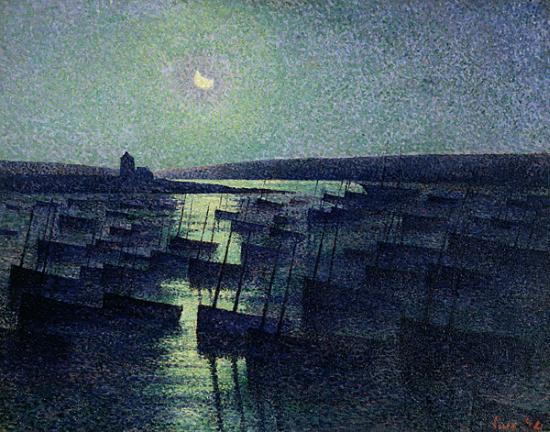
Camaret
Maximilien Luce
b. March 13, 1858
_______________________
Bachelard’s Agoraphobia
Dylan Trigg
Side Effects
Bachelard invites us into the heart of the home. There, he will seek to entrap us within its walls, protecting us—solitary dreamers of the past—from the anxious horror of the outside world. Bachelard will do this by the power of reverie. Casting a spell over our memoires, we will begin to share Bachelard’s nausea with doors, windows, and all other portals to the outside world. Because for him: “Memories of the outside world will never have the same tonality as those of home” (Bachelard 1994, 6). As such, the outside world, with its putrid swarm of other people and radical contingency, will never again be able to ontologically contend with the concrete materiality of the interior world. It is in this inside place that Bachelard will set the stage for a rediscovery not only of intimacy, but also of reality.
Here we join Bachelard, clinging to the heart of the home—this insignificant morsel of materiality and illusion—in the cosmic negation of an empty universe. As the darkness of the universe presses down, so the house becomes amplified in its importance. The house becomes us, as our flesh becomes less a product of human experience, and more the parasitic host for the organic life of the home. Here, he will teach us the riddle of existence: life is a mistake, and it’s better to turn away from the pestilence of the world and find solace in the spectrality of memory....(more)
_______________________
e-flux journal issue 33
One Divides into Two
Mladen Dolar
One divides into two, two doesn’t merge into one. This was an old Maoist slogan from the 1960s. Despite its air of universal truth it has become dated, and I fully realize the danger of appearing dated myself by starting in this way. Nowadays, one can recite this slogan in front of a class full of students and none will have ever heard it or have any inkling as to its bearing or its author—it’s almost like speaking Chinese. The slogan combines an ontological statement, a mathematical theorem, and a political battle-cry. So why does one split into two in mathematics, ontology, and politics? And why, once we arrive at two, can we never get back to the supposed unity of one?...(more)
_______________________

East Point, Gloucester
William Glackens
b. March 13, 1870
_______________________
“Bibbler and dub . . .”
John Latta
Isola di Rifiuti
(....)
... looking hard at early work of Lorine Niedecker, I nearly lament the loss of that moment of James Joyce seizing the hinterlands of America, gussying up the native (pre-commodity) surreal (though Niedecker is likely reading—through Zukofsky—the Eugene Jolas-edited transition with its “work in progress” Finnegans Wake excerpts and 1929 “Proclamation on the Revolution of the Word”). The end of the seven-part “Progression”:
To jesticulate in the rainacular or novembrood
in the sunconscious . . . as though there were fs
and no ings, freighter of geese without wings.
I know an ill for closing in, a detriment to tie-ups.
They pop practical in a greyfold, bibbler and dub—
one atmospheric pressure for the thick of us.
Hurry, godunk, we have an effort to wilt.
I shall put everything away, some day,
get me a murmurous contention, and rest.
Circa 1933. Niedecker, writing to Harriet Monroe (31 January 1933): “Poetry to have greatest reason for existing must be illogical. An idea, a rumination such as more or less constantly roams the mind, meets external object or situation by illogical association. Memory, if made up of objects at all, retains those objects which were at the time of first perception and still are the most strikingly unrecognizable. In my own experience sentences have appeared full-blown in the first moments of waking from sleep. It is a system of thought replacements, the most remote the most significant or irrational; a thousand variations of the basic tension; an attempt at not hard clear images but absorption of these. ...(more)
Niedecker (Stray Notes) 1 and 2John Latta
_______________________
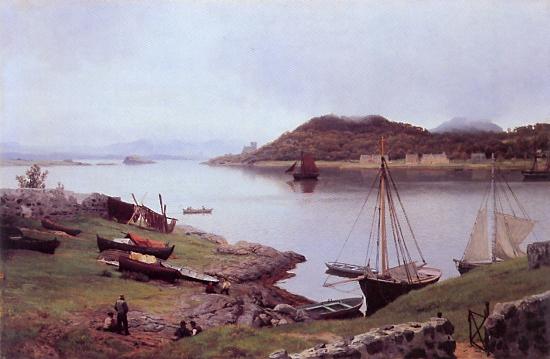
Oban Bay
Scotland
Hans Gude
b. March 13, 1825
_______________________
The Community Of Those Who Have Nothing In Common
Alphonso Lingis
google books
On the Community of Those Who Have...
Jeffrey Nealon
singularum
(....)
One is tempted, in confronting these initial difficulties, to introduce the book by situating it within an ongoing scholarly conversation. And Lingis's book certainly does intervene decisively among a series of recent philosophical works that take up the question of community from a continental perspective--most notably, Jean-Luc Nancy's The Workless Community, Maurice Blanchot's The Unavowable Community, William Corlett's Community Without Unity, and Derrida's The Other Heading: Reflections on Today's Europe; in turn, these books expand on certain themes of alterity and community articulated by Heidegger, Levinas, Bataille, and others. Then, of course, there is also much work on community that comes out of Hegelian, Marxist and postcolonial traditions--say, Charles Taylor's work or Habermas's or Fanon's--and one could perhaps introduce Lingis's work by situating it within the debates among communitarianism, Marxism and postcolonial studies.
However, as tempting as it is, such scholarly situating will never get to the heart and singularity of a work like Lingis's. Even from within the attempt to convene a community of works on community, I am inexorably thrown back on the difficult question of responding adequately to this work, to The Community of Those Who Have Nothing in Common. Its specificity calls not for comparison to a community of other works, but rather for a radically singular response....(more)
_______________________
Two takes on Michel Houellebecq's The Map and the Territory
LA Review of Books
From Cocks to Corpses
Domenick Ammirati
Portrait of the Artist in the Age of Wikipedia
Cécile Alduy
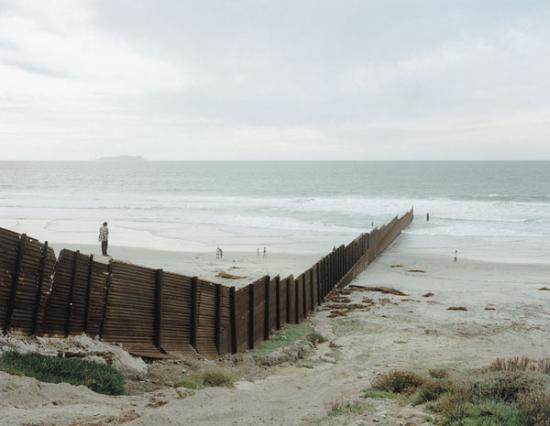
Angels in Fall
Karin Apollonia Müller
By the Sea
A blog exhibition
Fabio Sever
_______________________
Interview with Alphonso Lingis
Conducted by Bobby George & Tom Sparrow
singularum
(....)
Thinking about photographic images, I think we come to revise the way philosophy distinguished between reality and image and between subjective and objective. Discover images that the things, and not the human mind, engender.
Since Descartes and Locke and their friends, a critical question for philosophy was: How can I be sure that I am not dreaming? How establish the difference between perceptions that genuinely exhibit real things, and dreams that are concocted within the mind by the mind? "Images" in general were taken to be fabricated by the mind itself.
I instead set out to recognize that the things themselves engender "images" or doubles of themselves--shadows, halos, the images of themselves they project on water, on the glass of windows---and also on the surfaces of the eyes of mammals, birds, fish. For example, the puddle of water that appears shimmering on the surface of the road ahead in a hot day is not "subjective," produced by the mind; it is engendered by the road and the sun and everybody in the car sees it.
I then was really struck by the fact that these real or objective images the things generate captivate us and excite in us the pleasure of seeing. For Heidegger we are always on the lookout for implements, obstacles, paths, objectives. To the contrary, I recognized that when we step out into the world we are captivated by the shifting profiles and angles the things exhibit, the shadows and the reflections, the glitter on the lake and the radiance blazoning the outlines of the clouds, the shifting shadows and light on the face on the person we are talking to. And all this excites pleasure and keeps us fascinated and delighted by the things arrayed about us....(more)
Singularum operates on the premise that every facet of life yields transformative aesthetic encounters. It provides an independent venue for theorizing, transmitting, and staging these encounters. Its strategic aim is to exhibit thinking born at the interface of aesthetics & pedagogy.
via The Valve
_______________________
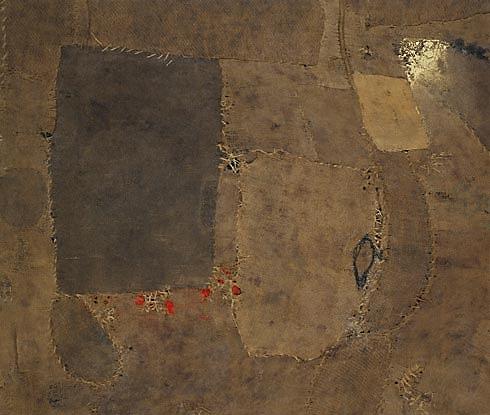
Alberto Burri
_______________________
Bones of the Book
Robert Moor
(....)
The trend towards meta-analyzing books, while a boon for academics practicing distant reading, likely will not change our experience of reading. But one can envision writers using this model to create truly mammoth texts with visible architectonics the reader could trace at will. A reader could trace various routes through the same text, tailoring the reading experience, slicing off digressions or exploring dead ends. The effect would be somewhat like reading a hypertext, but with map in hand.
(....)
Those more skeptical of the expanded e-book model might be at least partly converted by the new, best-selling app version of T.S. Eliot’s The Wasteland, by Touch Press. Eliot’s poem comes swaddled in diaphanous layers of multimedia, which rise or recede upon command, including critical interpretations, Eliot’s own scribbled-upon drafts, and live readings by the author, Ted Hughes, Alec Guinness, Fiona Shaw, and Viggo Mortensen. Upon release, the app quickly topped the iTunes list of best-selling book apps, and for good reason. It is the best enhanced e-book yet devised, revivifying a text long buried under its own accumulated dust. And yet it still feels chimerical, incongruous—an old man with cyborg arms. ...(more)
_______________________

photo - mw
_______________________
Lanthanum 10.1
Henry Gould
(....)
For we know the higgledy-piggledy history-
tapestry already : bayou of battle-axes, dented
helms, lead, bronze... an endlessly-reiterated
fool’d of cloth of gilt. Yet this magnetic sliver-
mystery – parable-density of clamped-on
unknown (Private Ewe?) – begins to drone
from primordial Cahokia-lump... & rise (halo-
zone)... mossy spacegerm-collage in river-cavern
(over-&-underwoven). & as the gate of dreams
is a reality-porthole... so this granary-grail of
loafy clamurmuring might lift the whole whorled
rose window into place (sighing up berm-streams).
...(more)
_______________________
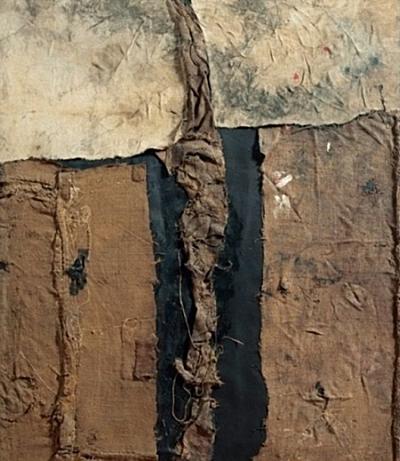
Sacco
Alberto Burri
b. March 12, 1915
_______________________
The Homophobe, The Moon Colonist, And The Vulture Capitalist:
Why The GOP Has Become A Cult Instead Of A Political Party
by Evert Cilliers aka Adam Ash
3quarksdaily
(....)
A very uneasy Jeb Bush confessed the other day: “I used to be a conservative and I watch these debates and I’m wondering, I don’t think I’ve changed, but it’s a little troubling sometimes when people are appealing to people’s fears and emotion rather than trying to get them to look over the horizon for a broader perspective.”
Hey, Jeb, the Republican Party is not your Daddy's party anymore. It's changed. It's moved out of politics into the twilight zone.
Let's face it. The GOP has created a home for all our entitled and nasty people. They include the millions of Americans who hate-the-Other -- the other being all those icky gays, blacks, Mexican immigrants, Latinos in general, Muslims, poor people, and those uppity women who don't want the state of Virginia to shove its footlong probes up their vaginas, or the 99% of women who use birth control and don't think this makes them sluts.
I hate therefore I am. These shudder junkies add up to at least 40% of Americans who are thoroughly hate-pickled and fear-tickled: all our homegrown crazies, Talibangelicals, right-wing talkradio listeners, and bigots. They're Nietzsche's ressentiment writ large. They live like a bunch of addled zombies among us, their brains half-eaten away by maggots of tinfoil-hat excrescence. You can't call them anything but members of a cult. They're just too weird. I mean, Republicans are weirder than Scientologists or vegans or Mormons or Moonies or Hare Krishnas. They're as weird as UFO abductees. What's wrong with America is that there is a semi-respectable haven for these backward bizarros: the erstwhile quite sane Republican Party. ...(more)

Door
Studiolum
Poemas del rķo Wang
_______________________
Four Poems
Peter Kane Dufault
Paramath
My dear, what you teach me is:
some premise exists for luck—
a sly elasticity hid
in the apparently sheer
mathematics of Stasis
against Motion—a tuck,
you could say, in the fabric, in-
appreciable as object and ir-
relevant therefor to our cosmic
equations—or (face it) in-
equations (considering this
dire edge What’s-to-Come has,
always, over What-Is)....Oh yes,
I’m a philosopher too,
and wish I could make clear
to colleagues this curve of you
occurring just when it did.
But they are too distant; won’t
come close enough, I fear,
to cry What’s this! What’s this!
and be told Don’t worry. Don’t
erase anything. It’s just bliss.
...(more)
_______________________
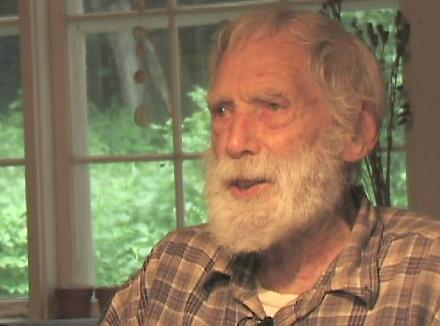
What I meant to tell you:
An American Poet's State of the Union
Peter Kane Dufault
trailer
This is the story of the American poet, Peter Kane Dufault - activist, WWII pilot, musician, boxer and 1968 Congressional candidate - as he struggles to come to terms with the US Government's assault on the Law of the Land and on the land itself. Peter is willing to write about the collective betrayals that we as a people have endured while also addressing his own personal losses.
Through conversations with actor Chris Noth, two Poet Laureates and his son, Peter reveals how poetry can bridge the chasms that separate us from one another and from the larger environment and political landscape. His rich language is able to articulate the American nightmare and point to a path out of the predicament we are in. As he observes a colony of seals, or a hawk in a snow storm, he reminds us of the splendor and fragility of our world.."
_______________________

photo - mw

photo - mw
_______________________
Losing Site
Architecture, Memory and Place
Shelley Hornstein
google books
Some of the exciting architectural theories that have developed over the past decade provide strong links to what I might call a break-out of new architectural theory of the relationships between architecture and place. By bringing together their specific connections to ideas about architectural sites that no longer exist, I hope to bring clarity to an otherwise obscure and highly interdisciplinary set of issues. When art history became more open as a discipline, and thus became a broader container for visual culture, the association became more attractive. The more interdisciplinary 'discipline' and vaster cultural terrain of visual culture brings together the extensive collection of visual experiences, media or images that comprise our viewing field. Still. architecture sits at once comfortably and uneasily between geography, visual culture, sociology, urban studies and many of the fine arts such as theatre, performance, film, humanities and philosophy. This book operates on the premise that a conversation about architecture is not exclusively about formal. isolated buildings but instead needs to be deepened and broadened as spatialized visualizations and experiences of place, seen across all communications and digitized media. _______________________

photo - mw
_______________________
The Eternal Ones of the Dream
Jim Powell looks at The H.D. Book by Robert Duncan.
threepenny review
Written at the twilight high water of American modernism in the early Sixties, chapters scattered among obscure literary magazines like the limbs of Osiris, nearly published as a book by Black Sparrow in 1971, circulated incomplete among poets in samizdat photocopy from 1979, contracted for publication by University of California Press in 1986 and then banished for a quarter century into limbo (a delay which would have killed any other book of its kind, if there were one, but this one is wholly sui generis), Robert Duncan’s The H.D. Book, complete in print at last, now manifests the timeliness of its permanence. Centering on the work of Hilda Doolittle and her part in the invention of modernist poetry, it embraces an assay of modernist practice and tradition as well as a searching investigation of fundamental issues in poetics, with elements of literary autobiography and cultural history and salient reference to depth psychology, cultural anthropology, political economy, art history, philosophy, and religion.
(....)
The approach is transdisciplinary, polymath, characteristically transgressive, and everywhere informed by an awareness that abstract categories and logic, consistent methodology, and the pursuit of theory obfuscate insofar as they lead away from an unblinkered confrontational scrutiny of fact. Rather than systematic argumentation, Duncan adopts the heuristic tools of modernist discourse—luminous detail, transect, juxtaposition and montage, layering, collage—to construct his discussion from an interplay of empirical insights. Norman Holmes Pearson, who originally suggested that Duncan write something to honor Doolittle’s seventy-fifth birthday, later commented, “I asked him for an H.D. book, and he’s writing an LSD book.” The H.D. Book fully lives up to acid’s multidimensional visionary inflorescence. It is an exploration, not a survey of captured territory. The view is from the West....(more)
_______________________

sugarbush
photo - mw
_______________________
Permission Taken, a Summary and Outline
Dan Gillmor
Dan Gillmor Goes Big, Goes Free, Goes Public
Alan Wexelblat
copyfight
(....)
The topic itself is centrally important to Copyfighters. Gillmor is quite up-front about the fact that using Google and gdocs represents a compromise. He describes how he's unplugged himself from the "church of Apple" in order to get some more freedom and control, but that no ideal solution exists. Each choice is some sort of trade-off and the project's purpose is not to steer a purist agenda but rather to make conscious trade-offs and guide other less-technical folk in making similar decisions.
It's a hard row to hoe. I've been vocal on Google+ (feel free to read my own stream and circle me there if you wish) about how I would like Google to stop racing Facebook to the bottom of the privacy-invading cesspit. Like Gillmor I think Google-flavor evil is less bad than Apple-flavor evil or Facebook-flavor evil but neither of us is blind to the fact that all these companies act in evil ways sometimes. Mottos notwithstanding, all of them are public companies with legal obligations to make as much money as possible and that's what they do.
In that spirit then, I'd encourage my readers here to join in the discussion Gillmor is opening, to follow the project as it unfolds, and let's see what comes of it....(more)
_______________________
The Neoliberal/Right-wing Psyche
Joseph Natoli
Bad Subjects
_______________________
The Republican Brain:
Why Even Educated Conservatives Deny Science -- and Reality
Chris Mooney
_______________________
UbuWeb Top Thirty-five
March 2012
1960 materials at UbuWeb
Selected by Al Filreis
_______________________

_______________________
Many Dreams: Or Persistence
(Autumn 2008 to Spring 2009)
Norman MacAfee
Scene4
(....)
Persist
music of the death of
mother leads me to
one story after another
you tell me yours wherein
someone tells you hers
wherein someone tells
her his wherein
someone tells him
his wherein someone
tells him hers wherein
let us write great poems against
the invader and the occupier
civilization began here
the two rivers of life
from which comes all of us
I take my hand to pen
to clay to cuneiform
berry juice to cave wall
to keyboard
my sibling artists
it is good to weep
for our bloody world
the greenest meadows
after all
the greenest meadows
(the couple dance forever
in the green world beneath)
the greenest meadows
after worst battles
red soaking into green
don't blame the grasses
they take what they are given
they do not judge
drinking when they can
...(more)
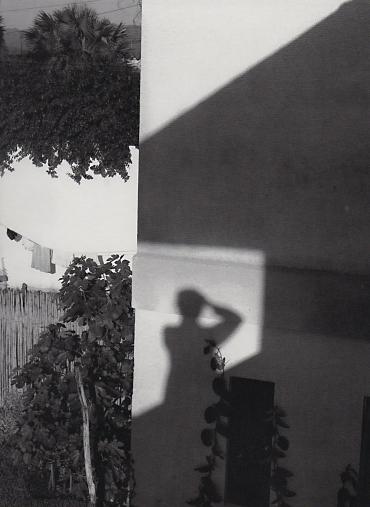
Sunrise
Lou Stoumen
1917 - 1991
1 2 3
_______________________
Three New Works by Joel Dailey
exquiste corpse
Trifecta
For The Veez
My life coach
Is wrestling
My death coach
On the living room couch
A case of water
Or a case of mistaken identity
Of the excitements to come
These are only two
You may be an unwitting victim
Of anti-textuality
Without even knowing it
Skirting the limits of abstraction, trombone—less ...(more)
.....................................................
Poems from Lower 48
Joel Dailey
Flying J Travel Center
Joel Dailey
big bridge .....................................................
“Chafing at the Margins”:
An Interview with Joel Dailey
Camille Martin
Rogue Embryo
(....)
Jack Spicer of course had the great idea that individual poems were better in a field of work; his notion of writing books (or chapbooks) instead of single poems was a valuable insight and very different from the workshop idea of penning the immortal poem, the one that will get you into The Greatest Hits of Am Po…..I’ve reveled in obscurity my whole writing life, and publishing with presses that were close to the ground, or even underground, well, they were a fit for my work, which is chafing at the margins, and now satirically attacks mainstream media, Am “culture” (when I hear the word ‘culture,’ I reach for the remote), and Am Poetry itself….I’m comfortable standing at the edge of the crowd rather than being engulfed in the thick of it. ...(more)
_______________________
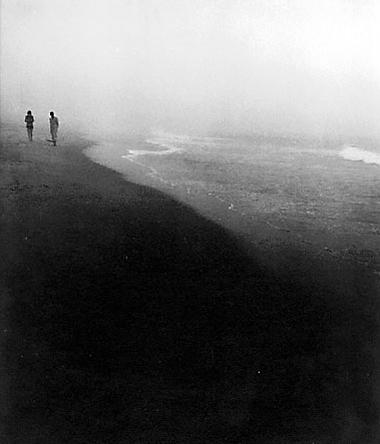
Atlantic City, New Jersey
1932
Lou Stoumen
_______________________
Old Moments [pdf]
Alasdair Gray
Some moments stay as fresh and clear
as this morning or five minutes ago
though crowds of later, mostly forgotten events
have killed or changed people I used to know.
In nineteen sixty-one and the month we wed
I pleased a roomful of folk so much that
‘I’m proud of you,’ my young wife said.
Our son liked to walk holding my hand
for years before he was ten.
If another boy came in sight we parted,
walked like strangers until, round a corner,
he thought it right for us to join hands again.
My marriage ended soon after.
My son dislikes me now, is a real stranger.
Queer how, near my own end, such old moments
stay so uselessly fresh and clear.
Sunk ships do not dream of wreck,
storms and battles that sank them.
Their hulls recall wakening to din
of final rivets hammering in,
a glide down a slipway and how
their bow first bit into brine
that buoyed them up and out to sea,
brine dissolving them now.
The Dark Horse
Lanark 1982: an unofficial Alasdair Gray website
_______________________

Exiting The Irt
1940
Lou Stoumen
_______________________
Word-flames
Harri Nordell
Translated by Emily Jeremiah and Fleur Jeremiah
books from finland
And the black spruce copse grows into the eyes
And the dust-shoe dances, star-clasp
And the hare drives the carriage of metempsychosis
There’s a stone in the carriage, moon and metacarpal
and sleep and copper and water
...(more)
_______________________
FB, Twitter and the rest 3: Petals on a wet black bough
George Szirtes
_______________________
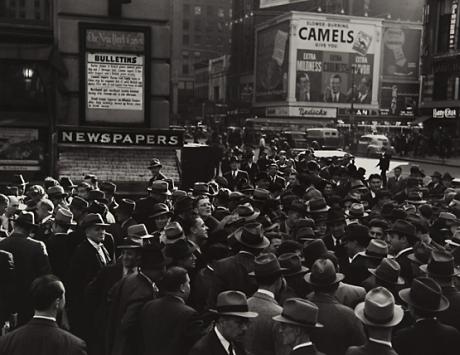
Lou Stoumen
_______________________
Crossing
Habib Tengour
Translated from French by Marilyn Hacker
words without borders
V
(....)
When your skin cracks in the sun
so that fine threads of salt stripe your chest
you’ve got to hurl yourself into the water
before roasting
before industrial waste
before the floating death that pricks your footsoles
and not becoming the archaeologist of a worldly pleasure
or forgetting to die of it
My tribe invents tales of origin
it guards its genealogy jealously
though it is oddly careless about linguistics
transforming words and values at will
from elsewhere it gets nail files clippers scissors
rubber bands after the problems of usage
it doesn’t follow rules but it conforms
to the flaking landscape
it secretly appreciates the lewd exploits
of its poets from me it expects only
that I follow my path as it presents itself
at the moment when the heart opens unconstrained
it has no use for the cortčge of self-satisfied
humanists nor for the theories of apes whether courtly
or bearded it most often falls silent
facing danger is that consent
it loves the one who can hold his ground and speak
frankly it rushes in without thinking when
the discussion heats up
I am still
surprised that a banal cloud carries off
the city the desert memory made holy
a white stone
pause
I embrace you dazzling sea at journey’s end
…
the dog
ossifies
at the cave’s
mouth
the state stud-farms remain
where Moharram’s full moon can be seduced
...(more)

photo - mw
_______________________
Errory
Tom Raworth
joined harmonising the best
so it needn’t wait
phrase: the question are you sure?
hanging three feet off the ground
silent, absolutely quiet
headquarters – we travelled north
clawing back small shelter
hung with screaming
on the same rig
blended in enthusiasm
as the race approached
through cracks in snow
free-falling into mind
alive with brightness shivering
instantly into sleep
changed, re-formed
they run, they run
with madness into chutes
of changed values
all of them conventional
vibrations of division
dare to refuse the glass
lazily through long green
discrete landing sites
to a transmitting unit
over the protective line
wave patterns in space
form black against
sifted patches of moonlight
birds move in the dark
their faint contours
singing small notes
to the rhythm of a train
so empty at this hour
silence in between
contains the words
...(more)

State of error (PoemTalk #50)
Tom Raworth at epc and the Poetry Foundation
_______________________

Jindrich Styrsky _______________________
Decay is the Way Dead Things Live
Jacob Mikanowski on on Bruno Schulz, Jindrich Styrsky, and other modernist masters of matter.
Los Angeles Review Of Books
(....)
... perhaps the most important way in which Schulz’s cosmos differs from our own is that dead things are never simply dead. Matter is never inert. Beneath its inertia and clumsiness, matter trembles with a life of its own. It pulsates and shivers, grows, ferments and germinates. Its curious respiration can be felt passing over moldering, water-stained walls and in the pullulating jungles of wallpaper. In certain environments — in forgotten rooms overgrown with bricks and above rubbish heaps, abounding in the hummus of memories, nostalgia, and sterile boredom — matter sprouts and flowers in a parody of vegetable life. Trapped in wax figures and tailors’ dummies or crucified in chests and tables, it rebels against the cruel prison of its form.
Schulz’s fiction is one of those rare bodies of literary work that gives rise to its own cosmology. Attention to the secret, inner life of matter is at its heart. This is what makes his stories seem so strange and unlike anything else in the modernist canon, at once domestic and uncanny, sweetly nostalgic and unaccountably bizarre. The life of matter is also at the heart of his poetic project. As he explained in a letter to his friend and literary rival S.I. Witkiewicz, his 1934 short-story collection Cinnamon Shops (The Street of Crocodiles in English) “offers a certain recipe for reality, posits a certain special kind of substance … it contains no dead, hard, limited objects … the life of the substance consists in the assuming and consuming of numberless masks.”...(more)
_______________________

"On the Needles of These Days"
Photographs, 1934-1935
Jindrich Styrsky
Ubu Gallery
_______________________
Dreams
texts and images by Jindrich Styrsky
Translated from the Czech by Jed Slast
tarpaulin sky
_______________________
6 poems by José-Flore Tappy
translated by John Taylor
TWO LINES Online: March 2012
Center for the Art of Translation
Luminous shears cut through the darkness
José-Flore Tappy
Translated by John Taylor
Luminous shears cut through the darkness
the drowsy eye whets itself
bowl becomes beak
against the circular backdrop of night
in a distant confusion of stirring sheets and linen
a hand unbinds
the grassy laughter of morning
and the light
flows
between the hairy horns of the grapevines
a willow shatters the thick garden
the drunken sun shines through
the fanlike house
partitions shifted pushed over among pieces of woodwork
a big unbound book
and turns the doorknob of your voice
on the realm of the day
The Poetry of José-Flore Tappy
John Taylor Asymptote
_______________________

Jindrich Styrsky
_______________________
Mute Vol. 3, No. 2 - Politics My Arse
'Well, the first thing I want to say is, politics my arse' Issue 2 includes: cover art by Johnny Spencer * Alberto Toscano on logistics and anarchism * Gail Day on postmodernism at the V&A * Brian Ashton zooms in on RFID * Mark Neocleous on generalised anxiety * Benjamin Noys on spaghetti communism * Howard Slater on the August riots * Mme Tlank and Mira Mattar on motherly love, care and capital * Stefan Szczelkun on Gregory Sholette's book, Dark Matter * Anustup Basu on the Arab Spring * Sander on why China won't save capitalism

photo - mw
_______________________
Free Poetry For
... an ongoing series of tiny chapbooks that are printed in a limited edition. When the chapbooks are printed, they are disseminated throughout public space (cafes, airports, buses and bus shelters, trains, waiting rooms, etc. etc. etc.) The purpose of the series is to heighten the awareness of poetry by putting it (poetry) in odd and unusual places and spaces, where poetry isn’t traditionally understood to belong.
Number Three: rob mclennan
I have no province,
hands out,
forgive
waveforms, carved bovine flesh,
a service of cells
the watchful molecular eye
morning light gathers strength,
& returns,
the hour your January car needed
to thaw, melt
down icy slopes,
sick of the wait
renewable as canopy, sequins, panoptic
of stars,
out of vocabulary, rivers of drink,
explosive in parts
ignition filled gasping breath
& myths of pure origin,
baseball love a transistor-head, doubled
a key turns, repeat, over, ...(more)
_______________________

photo - mw
_______________________
FB, Twitter and the rest: a manner of speaking 1
George Szirtes
From one perspective it's rather horrifying how the world plugs into one enormous website and talks till it is blue in the face. It isn't the meditative retreat often recommended for the spiritual, a term that might apply to artists - and to poets in particular - and it surprises me how readily I have adapted to it. Being sixty-three I expected to find this way of communicating somewhat inimical and it may be that at some stage I will feel I have to withdraw from it.
The way I justify it to myself is by regarding all such things as literary forms....(more)
FB, Twitter & the Rest 2: Booking Your Face
George Szirtes
_______________________
Why I'm Back on Facebook
Justin Erik Halldór Smith
... how could I so blatantly fail to live up to my intention? The short answer is that I literally had to go back; I had too much information stored in various parts of my account --in my message box, in my photos, and even in my timeline-- to which I needed access. It was impractical for me to have to revive the account each time, particularly since after a certain number of deactivations, Facebook starts imposing a 24-hour delay on each new reactivation. As a very serious philosopher wrote in response to my homecoming update: "Zuckerberg has us by the short and curlies."...(more)
_______________________

photo - mw
_______________________
The Precariat: The New Dangerous Class
Guy Standing
full text on-line
This book is about a new group in the world, a class-in-the-making. It sets out to answer five questions: What is it? Why should we care about its growth? Why is it growing? Who is entering it? And where is the precariat taking us?
That last question is crucial. There is a danger that, unless the precariat is understood, its emergence could lead society towards a politics of inferno. This is not a prediction. It is a disturbing possibility. It will only be avoided if the precariat can become a class-for-itself, with effective agency, and a force for forging a new ‘politics of paradise’, a mildly utopian agenda and strategy to be taken up by politicians and by what is euphemistically called ‘civil society’, including the multitude of non-governmental organisations that too often flirt with becoming quasi-government organisations.
We need to wake up to the global precariat urgently. There is a lot of anger out there and a lot of anxiety. But although this book highlights the victim side of the precariat more than the liberating side, it is worth stating at the outset that it is wrong to see the precariat in purely suffering terms. Many drawn into it are looking for something better than what was offered in industrial society and by twentieth century labourism. They may no more deserve the name of Hero than Victim. But they are beginning to show why the precariat can be a harbinger of the Good Society of the twenty-first century. _______________________
Despair all you can; it's a mistake not to: Dogma by Lars Iyer
Steve Mitchelmore
this space
(....)
In the short or long hours waiting for an answer, I cannot get close to the necessary connection. Perhaps this axe-idea is after all only the illusion of a promise arising from a haphazard accumulation of generic effects; occasional recognition of unconscious susceptibility to buttons pushed. What suggests itself then is that what has really abandons us is Literature itself; the disaster that affects is the death of Literature.
Literature is a corpse and cold at that. Intuitively we know this to be the case, we sense, suspect, fear, and acknowledge it. The dream has faded, our faith and awe have fled, our belief in Literature has collapsed.
Lars Iyer's manifesto after the end of literature and manifestos confirms the suspicion. We read in a forest far from everyone. But what was Literature when it was alive?
It was the literature of Diderot, Rimbaud, Walser, Gogol, Hamsun, Bataille and most of all Kafka: revolutionary and tragic, prophetic and solitary, posthumous, incompatible, radical and paradoxical, a dwelling for oracles and outsiders, it was defiant and pathetic, it sought to break and alter, to describe, yes, but in describing, shatter, it was outside the culture looking in, and inside the culture looking out. Works of this nature, works in this spirit, no longer exist. Or rather, they still exist, but only as a parody of past forms. Literature has become a pantomime of itself, and cultural significance has undergone a hyperinflation, its infinitesimal units bought and sold like penny stocks.
The hyperbole is familiar from Kafka's letter and similarly enchanting. Unlike Kafka, Iyer offers a fresh breadcrumb trail out of the forest:
Write about this world, whatever else you’re writing about, a world dominated by dead dreams. Mark the absence of Hope, of Belief, of Commitments, of high-flown Seriousness. Mark the past from which we are broken and the future that will destroy us. Write about a kind of hope that was once possible as Literature, as Politics, as Life, but that is no longer possible for us.
The manifesto marks the publication of his new novel Dogma, which follows Lars and W., two hysterical and hapless academic philosophers, as they travel to the American South and initiate their new rules for giving papers at conferences, the dogma of the title. You should know Lars and W. from their first appearance on the blog Spurious and the subsequent novel with the same title. Lars and W. pursue the big themes of philosophy and literature from the disadvantage point of dead dreams, absence of hope and seriousness, with some inadequacy and redundancy added, just for them....(more)
_______________________

photo - mw

photo - mw
_______________________
Dancing with the Dead:
Language, Poetry, and the Art of Translation
Red Pine
CipherJournal
Every time I translate a book of poems, I learn a new way of dancing. The people with whom I dance, though, are the dead, not the recently departed, but people who have been dead a long time. A thousand years or so seems about right. And the music has to be Chinese. It’s the only music I’ve learned to dance to.
I’m not sure what led me to this conclusion, that translation is like dancing. Buddhist meditation. Language theory. Cognitive psychology. Drugs. Sex. Rock and Roll. My ruminations on the subject go back more than twenty-five years to when I was first living in Taiwan. One day I was browsing through the pirated editions at Caves Bookstore in Taipei, and I picked up a copy of Alan Ginsberg’s Howl. It was like trying to make sense of hieroglyphics. I put it back down and looked for something else. Then a friend loaned me a video of Ginsberg reading Howl. What a difference. In Ginsberg’s voice, I heard the energy and rhythm, the sound and the silence, the vision, the poetry. The same thing happened when I read some of Gary Snyder’s poems then heard him read. The words on a page, I concluded, are not the poem. They are the recipe, not the meal, steps drawn on a dance floor, not the dance....(more)
_______________________
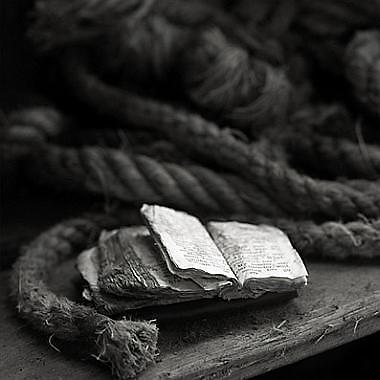
Frozen History
Josef Hoflehner
_______________________
Belated Debt Post: Ancient Efficient Markets Hypotheses
John Holbo
Crooked Timber
(....)
The universe is in hock to itself up to the armpits. Everything that moves is debt and payback in motion. The nub of Panurge’s joke is here. If you like the universe, with all its moving around ways, you’d better love debt.
Graeber appreciates that you find this sort of thinking everywhere, at all times, but he also wants to hammer home that the tendency of economists to think this way is blinkered and parochial. And bourgeouis and modern. It’s not exactly a contradiction to have it both ways. It may be perfectly true that this style of thinking is highly characteristic of economists and the modern, commercial bourgeoisie. But this isn’t a distinguishing characteristic. What Graeber thinks is that everyone is wrong, not just economists in the grip of the myth of the double-coincidence. Folk thinking and econ thinking are the same. And wrong, according to Graeber (and Plato before him)....(more)
_______________________

The Avant-Garde Doesn't Give Up
1962
The 'Defigurations'
Asger Jorn
b. March 3, 1914
_______________________
A Preface to Silence:
On the Duty of Vigilant Critique
Norman K. Swazo
janus head
(....)
So, we must consider: what is the duty of vigilant critique insofar as it speaks at the juncture of philosophical and political responsibility? It is the duty of speech which delivers into the present its memory, links present and past, and indicts the present after the indictments of the past and the judgments of memory. But one feels compelled to ask: Is this strategy not to be rejected in principle? Is it not to be rejected even with regard to consequences, with regard to a judgment of historical efficacy? Must we forever "cling to our shame" and so hold the future hostage to our ressentiment? To speak the name is to call forth the thing -- to utter the demon’s name is to call forth the demon. Such is the admonition of ancestral tradition. To name is to convey from non-being to being: male dictus, male dictus. . .
Speech, in its essential structure, is apophantic, as Aristotle already pointed out in his On Interpretation. Speech, as Heidegger reminds us in echo of Aristotle, "lets us see," "makes manifest what is being talked about," and thus "makes it accessible to another". To name, then, is to call out "into the distance," to call the temporally afar "into nearness." Such calling brings into nearness. To bring into nearness, to "bridge," is not to bring into presence-at-hand, granted. Yet, such calling ever remains an oblique invitation, a bidding to come, such that what is called thereby has bearing, i.e., bears upon us in our presence. In this bearing, a world is borne by the word; thus, the word "gathers a world," unfolds and discloses it in the manner of its bearing. That gathering of world, as a disclosure of a "referential totality," can be a benign gathering. It can also be a gathering of malignity: Some bridges are better left unbuilt. ... ...(more)
_______________________

photo - mw
_______________________
Five Poems
Parveen Shakir
translated by Alamgir Hashmi
cipher journal
We Are All Dr Faustus
In a way we are all
Dr Faustus.
One from his craze
and another helpless from blackmail
barters away his soul.
One mortgages his eyes
to trade in dreams
and another offers
his mind as collateral.
All that one may need sense
is the currency of the day.
So a survey of life’s Wall Street says
that among those with the buying power these days
self-respect is very popular.
...(more)
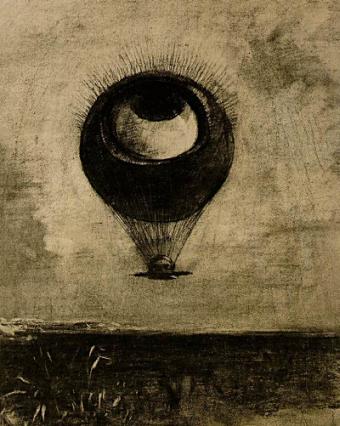
Eye-Balloon
Odilon Redon
_______________________
from
What Redon Knew
Richard Hoffman
(....)
Or perhaps the chalice was never meant for you,
and all along you were only a knot of fear and yearning,
a thorny wish the world would cooperate, and after
you had closed your eyes awhile, look different
enough, for a moment, to compose a vision all your own,
something only nearly true, not true, a comfort, a truce,
a prayer to a god who climbed to invisibility, acending
like the ballon the child was warned not to let go of,
and not the frightening teeth in the dark,
the chimera, the phantom in the window.
After all, things germinate because a spirit is in them,
whether or not we choose to think we can name it, and because
they are preparing to die. Orpheus was only able
to sing the creatures into harmony, not change their natures.
The well will always have only your undulant face in it,
perplexed and blank as any creature of the sea, or as an old self
you no longer know what to make of, and which certainly
does not know what to make of what's become of you.
(....)

Beyond This Place
Cheryl Fallon
OMPHALOS 14
nine point publishing
_______________________
Edging toward the fully licensed world
Doc Searls
(....)
So, while BigCo walled gardeners such as Apple and Amazon continue to convert things that could be owned in the physical world (starting with music and books) into what can only be licensed in the virtual one, the regulatory framework around the Internet is ratcheting in an ever more restrictive direction, partly at the behest of regulatory captors such as the phone, cable and content companies (all getting more and more vertically integrated), and partly at the behest of countries that want the UN and the ITU to help them restrict Net usage inside their borders. The latter is less about licensing than about pure politics, but pure politics is customarily driven by big businesses looking for protection or easement. Both are at variance with the free and open marketplace the Net opened up in the first place.
The wide-open computers most of us used for decades are also being marginalized now that more of our connected lives are moving to partially-open smartphones, tablets, Kindles and Nooks.
What’s hard for these businesses to grok — and for us as well as their users and customers — is that the free and open worlds created by generative systems such as PCs and the Internet have boundaries sufficiently wide to allow creation of what Umair Haque calls “thick value” in abundance. To Apple, Amazon, AT&T and Verizon, building private worlds for captive customers might look like thick value, but ultimately captive customer husbandry closes more opportunities across the marketplace than they open. Companies and governments do compete, but the market and civilization are games that support positive sum outcomes for multiple players.
By losing the free and open Internet, and free and open devices to interact with it — and even such ordinary things as physical books and music media — we reduce the full scope of both markets and civilization.
But that’s hard to see when the walled gardens are so rich with short-term benefits....(more)
_______________________

Open Sea 801
Ted Kincaid
2011
via
_______________________
You Will Never Kill Piracy, and Piracy Will Never Kill You
Paul Tassi
Forbes
Piracy: The Intellectual Property Wars from Gutenberg to Gates
Adrian Johns
google books
mediafire pdf
Information Feudalism: Who Owns the Knowledge Economy
Peter Drahos and John Braithwaite
google books
mediafire pdf
In Praise of Copying
Marcus Boon
google books
mediafire pdf
_______________________

Orpheus
Odilon Redon
1840 - 1916
_______________________
The Public Domain: Enclosing the Commons of the Mind
James Boyle
This book is an attempt to tell the story of the battles over intellectual property, the range wars of the information age. I want to convince you that intellectual property is important, that it is something that any informed citizen needs to know a little about, in the same way that any informed citizen needs to know at least something about the environment, or civil rights, or the way the economy works. I will try my best to be fair, to explain the issues and give both sides of the argument. Still, you should know that this is more than mere description. In the pages that follow, I try to show that current intellectual property policy is overwhelmingly and tragically bad in ways that everyone, and not just lawyers or economists, should care about. We are making bad decisions that will have a negative effect on our culture, our kids’ schools, and our communications networks; on free speech, medicine, and scientific research. We are wasting some of the promise of the Internet, running the risk of ruining an amazing system of scientific innovation, carving out an intellectual property exemption to the First Amendment.
_______________________
All Bugs Are Shallow:
Digital Biopower, Hacker Resistance, and Technological Error in Open Source Software
Matthew Kelly
ctheory
(....)
FOSS (free and open-source software) operates upon the idea that every computer user should have open access to source code, which is the basic code that powers any computer program, and be able to modify it without having to negotiate software developers' security restrictions. Users can redistribute their personalized modifications within on-line domains so others can further edit modified code as they please. In order to understand how these principles relate to the traditional proprietary system of software development, it is integral that FOSS is viewed with regards to the social, political, and economic circumstances surrounding its inception. Providing such a genealogical account will demonstrate how free- and open-source practices did not miraculously appear as a self-contained ideology from beyond the capitalist paradigm but, rather, materialized through the internal fissures, struggles, and unforeseen reactions within software programming communities as well as the governmental legislation thereof. Furthermore, a genealogical reading will prevent a preemptive teleology of FOSS's inception, meaning that these phenomena can be analyzed without an over-determined conclusion, such as the complete subversion of the late-capitalist system, in mind....(more)
_______________________
Innovation and Nanotechnology:
Converging Technologies and the End of Intellectual Property
David Koepsell
google books
Chapter one:
(....)
This book comprises an argument that (a) current schemes of IP protection are not only pragmatically incapable of being applied to nanotechnology,2 but also theoretically inadequate to promote modern innovation, and (b) nanotechnology reveals that our relationships to our artifacts have been misunderstood, and poorly applied through laws that were once considered necessary to promote innovation, but which now prove to be only impediments. This argument is made by looking first at general trends in the history of innovation, and the technologies and institutions that have enabled and sped it in the past hundred years, converging now with nanotechnology in its broadest sense; and then looking at the first principles involved in our theories of IP, and criticizing their bases as well as effects. Finally, a new paradigm will be offered, based upon methods and processes being adapted in both the technologies of innovation and new forms of protection being developed at the grassroots, eschewing old forms of monopoly, and embracing both the spirit and methods of open science and innovation....(more)
Nanotechnology and the End of Intellectual Property
David Koepsell interview Changesurfer Radio
_______________________
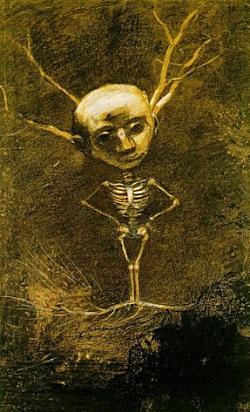
Spirit of the Forest
Odilon Redon
_______________________
On. Say on. Be said on. Somehow on. Till nohow on. Said nohow on.
Say for be said. Missaid. From now say for missaid.
Say a body. Where none. No mind. Where none. That at least. A place. Where none. For the body. To be in. Move in. Out of. Back into. No. No out. No back. Only in. Stay in. On in. Still.
All of old. Nothing else ever. Ever tried. Ever failed. No matter. Try again. Fail again. Fail better.
(....)
A place. Where none. A time when try see. Try say. How small. How vast. How if not boundless bounded. Whence the dim. Not now. Know better now. Unknow better now. Know only no out of. No knowing how know only no out of. Into only. Hence another. Another place where none. Whither once whence no return. No. No place but the one. None but the one where none. Whence never once in. Somehow in. Beyondless. Thenceless there. Thitherless there. Thenceless thitherless there.
Where then but there see -
—Samuel Beckett, Worstward Ho
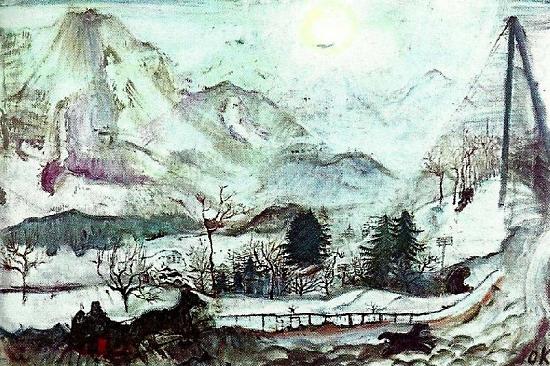
Oskar Kokoschka
b. March 1, 1886
_______________________
17 seconds
( : a journal of poetry and poetics )
edited by rob mclennan
Fourth Issue: Winter 2012 [pdf]
from “Blueshift Road”
Camille Martin
Snipe Hunt
(....)
... Sapiens’ mind isn’t so alien—it thinks
about wandering with a wistful belief
in purity: children astray in the woods,
wayward threads in a loom. The weft called
deity is a metaphor in any set
of coordinates, like fog in d-flat. In the fourth
galactic quadrant, staircases in a labyrinth gallop
to the rhythm of their climber, a being
with large infantile head (just as we’d imagined)
juggling doubloons in zero visibility, whistling a tune
about pumice, in its eloquent language
a joke-word for the uncanny. ...
(....)
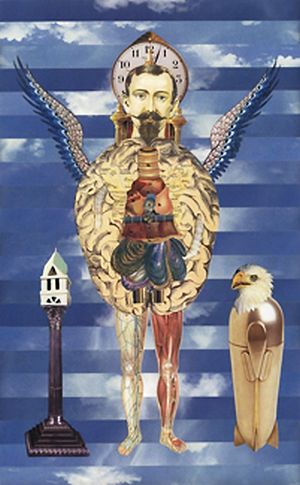
Afterimages Of History
collages
Camille Martin
Camille Martin blogs at Rogue Embryo
_______________________
Vexed
Lesley Ingram
This flea thing.
This twitch.
This flinch in my flesh.
This itch.
This tic between my teeth.
This nit.
This scratch.
This lop.
This want of the word.
This madness of distraction.
The Flea
_______________________

promontory
collage
John Ashbery
Seven Poems and 8 Collages
John Ashbery
from PN Review 203, Volume 38 Number 3, January - February 2012.
Récit
It's really strange, and I know that you
know that there's not enough strangeness
in the world, only damper pedals seething
like governesses at what must have come before
the silvery wrapper. They printed thousands
of them, the police were at a loss to explain
this amazing new fecundity from over the water.
Strangers may kiss, dodging moral issues till
the next ho-hum, and pray off-beat: This butter's bitter!
How far can you be so abiding? A toddler,
beating like a separate Indian, caused us to worry
our strength and then back off, it was the ninth
grueling time we had done so. And I, my love,
was far from incomplete at that juncture.
My real-time dappled logic wanted to apologize.
via The Page - Poetry, essays, ideas
_______________________
from Odes: 15 ["Nothing"]
Basil Bunting
Nothing
substance utters or time
stills and restrains
joins design and
supple measure deftly
as thought’s intricate polyphonic
score dovetails with the tread
sensuous things
keep in our consciousness.
Celebrate man’s craft
and the word spoken in shapeless night, the
sharp tool paring away
waste and the forms
cut out of mystery!
When taut string’s note
passes ears’ reach or red rays or violet
fade, strong over unseen
forces the word
ranks and enumerates...
mimes clouds condensed
and hewn hills and bristling forests,
steadfast corn in its season
and the seasons
in their due array,
life of man’s own body
and death...
The sound thins into melody,
discourse narrowing, craft
failing, design
petering out.
Ears heavy to breeze of speech and
thud of the ictus.
.....................................................
Delight dwindles. Blame
stays the same.
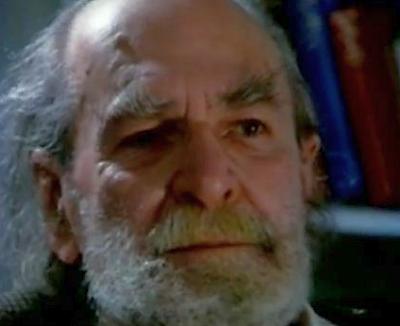
Basil Bunting
b. March 1, 1900
reading from 'Briggflatts'
youtube
Basil Bunting at EPC and the Poetry Foundation
_______________________

Time, Gentlemen Please
Oskar Kokoschka
1971-2
_______________________
Words without Borders
March 2012: The Mexican Drug War
A Report from Hell
Carmen Boullosa
(....)
... today Mexico is submerged in a hell. Newspapers report daily on bullets flying in bars, rehab centers, schools, churches, city streets. They report on severed heads and mass graves, too.
This is not a fight in the political arena; it is unlike anything we ever imagined. The fighting among cartels, with fortunes lost and fortunes gained, has no civic agenda. Gangsters issue no proposals, have no ideals or ideology. What the torturers and murderers do to the massacred—mutilating them, raping them, dismembering them—drug trafficking and the war against it have done to our social agenda. They’ve smashed it.
The effects of this war have curdled Mexico. The work in this month’s issue of Words without Borders provides some insight into this horrible reality. The pieces I’ve selected are by poets, novelists, journalists who have approached the topic fearlessly. They have not made a spectacle or a circus of the violence, they are not trying to be trendy. This is not narco-literature. It is literature pure and simple. I hope it will bring you closer to a Mexico we never thought we’d witness, the one that exists today....(more)
_______________________

photo - mw
_______________________
Why the book’s future never happened
We now read on iPads and Kindles and Nooks. So why did the hypertext novel fail to launch?
Paul Lafarge
(....)
Hypertext fiction is in a tough place now. Born into a world that wasn’t quite ready for it, and encumbered with lousy technology and user-hostile interface design, it got a bad reputation, at least outside of specialized reading circles. At the same time, it’s impossibly hard to create, one of the only modes of fiction I know of which is more demanding than the novel. (And then add to that the need to create a user interface, and maybe a content-management system, and is it going to be an app? Suddenly your antidepressants aren’t nearly strong enough to get you out of bed.)
It’s tempting to leave the story there, and to let the hypernovel, or whatever you want to call it, become part of the technological imagination of the past, like the flying car. But I believe that the promise of hypertext fiction is worth pursuing, even now, or maybe especially now. On the one hand, e-books are beginning to offer writers technical possibilities that, being human, we’re going to be unable to resist. On the other, the form fits with life now. So much of what we do is hyperlinked and mediated by screens that it feels important to find a way to reflect on that condition, and fiction, literature, has long afforded us the possibility of reflection. Just as the novel taught us how to be individuals, 300 years ago, by giving us a space in which to be alone, but not too alone — a space in which to be alone with a book — so hypertext fiction may let us try on new, non-linear identities, without dissolving us entirely into the web. It may give us room to concentrate on dispersion, to focus on distraction, and in that way, possibly, to get a sense of what we are becoming before the current sweeps us away. In the end, this isn’t a question of what hypertext can do for fiction, or for the novel; it’s a question of what fiction, and in particular the novel, can do for hypertext. Hypertext is here to stay, but the novel’s future may depend on the answer....(more)
via Dennis G. Jerz
|

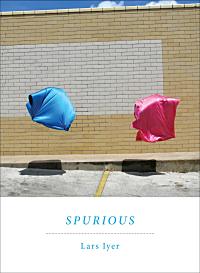


 The Age of Briggs & Stratton
The Age of Briggs & Stratton








































